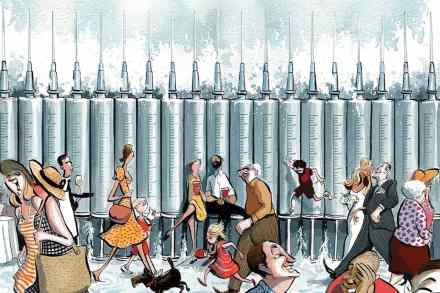Could the third wave be running out of steam?
Will we get to 100,000 new Covid infections a day, as Sajid Javid has suggested, or even to 200,000 a day as Professor Neil Ferguson has floated? Until Saturday, new cases were galloping upwards at such a rate that such an outcome seemed assured. But in the last couple of days there has been a dramatic falling off in new cases: from 54,674 reported on Saturday, to 48,161 on Sunday and 39,950 on Monday. Those are for the UK – for England the corresponding figures are 50,955, 44,777 and 34,657. Each of these figures were higher than the same day the week before. And of course, we also have to be wary of





